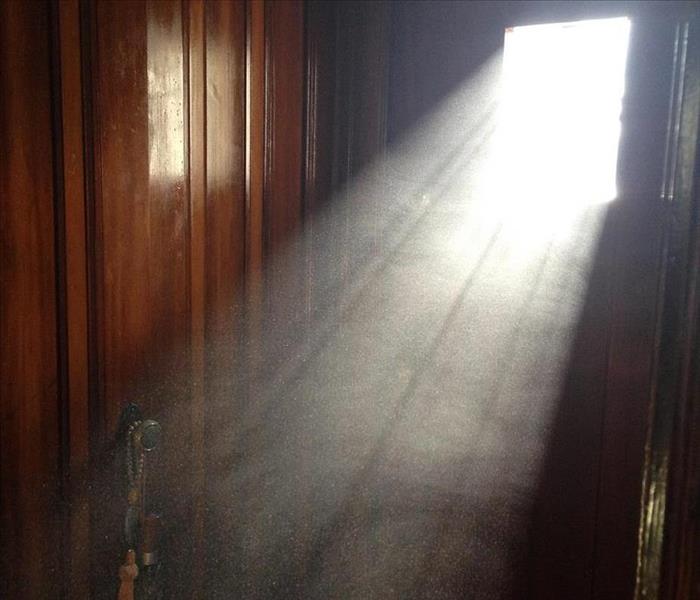Breathing Easy
9/27/2018 (Permalink)
Breathe Easy: A Guide to Improving Indoor Air for Your Child’s Health
Your home’s indoor air quality is likely far worse than outside. Your walls, roof and windows can trap everything from dust mites to mold and continually circulate them through the air. These and other irritants can have long-term effects on your children’s health. The EPA reports that respiratory issues, allergies and even cancer can all result from breathing in contaminated air.
Is your child at-risk?
No matter where you live, your air is not completely clean. However, sensitive children may experience negative side effects of poor air quality. Mold is perhaps the biggest culprit. The American College of Allergy, Asthma & Immunology explains that mold allergy symptoms mimic those of other respiratory concerns. Your child may experience coughing, wheezing, sneezing, chronic nasal congestion and irritated eyes.
First let’s clear the air!
Fortunately, there are ways to improve your home’s air quality and help your family breathe easier. You can reduce allergens by keeping pets out of the allergy-prone child’s bedroom. Never allow anyone to smoke in your home and don’t store seasoning wood indoors as it can contain mold spores. Controlling moisture will further reduce mold from flowing through the air. Make sure your exhaust fan and vents in the basement, attic, crawlspace and over the oven are functional and route your dryer vent outdoors. If you have any leaks, fix them immediately and remove any water-damaged materials from the home.
Have your HVAC system serviced at least twice per year. Proper maintenance of your HVAC system also requires that you periodically change the filter, so choosing the right-size filter when making a replacement is essential. A HEPA Filter in your vacuum will further reduce debris from swimming through the air and into your children’s lungs.
Remember ALL the soft surfaces...
It isn’t just air that can hold on to pollutants. The soft surfaces in your home should be cleaned thoroughly at least once per month as allergens can pile up quickly. Wash the curtains, pillowcases, and throw blankets and make sure to vacuum carpets and area rugs carefully. Nationwide Children’s Hospital notes that dust mite allergies may be mitigated in part by regularly washing sheets and adding an allergy cover to your child’s bed.
Bring the outside in
A simple and effective method that will impact air quality is to decorate your home with succulent and other types of plants that naturally filter out pollutants, including volatile organic compounds (VOCs). VOCs are often found in air fresheners, bleach and other harsh cleaning chemicals. American Home Shield recommends aloe vera and spider plants. Raising your windows a few times each week will help, too. Open windows on either side of your home to encourage airflow and remember that the inside air is actually dirtier than the outside air.
Further reduce pollutants
To further reduce pollutants, consider investing in an air purifier, especially if you have pets or children with allergies. This will act as a secondary filter as will installing a dehumidifier in the bathrooms, basement and other areas prone to moisture. Himalayan pink salt lamps may also be beneficial as, in addition to being an exceptional source of soft light, these fashionable home decorations are hygroscopic, meaning they attract water molecules that contain dust and other allergens.
All of the above tips are exceptional ways to clean the air inside your home but there is no substitution for actually letting your child spend some time outdoors. Set aside a few afternoons each week for fun family activities such as birdwatching, riding bikes or even backyard camping. While these activities pose their own concerns – bug bites, sunburn, etc. – they will give your kids an opportunity to breathe fresh air, which can help clean their lungs and boost their overall health.
While we all like to believe our children are safe at home, the reality is that too much time indoors can actually make your child sick. Pay attention to your air quality and take steps to reduce allergens and irritants. Your children’s lungs will thank you and you’ll sleep easier knowing that dust mites and dander won’t disrupt their dreams.






 24/7 Emergency Service
24/7 Emergency Service
